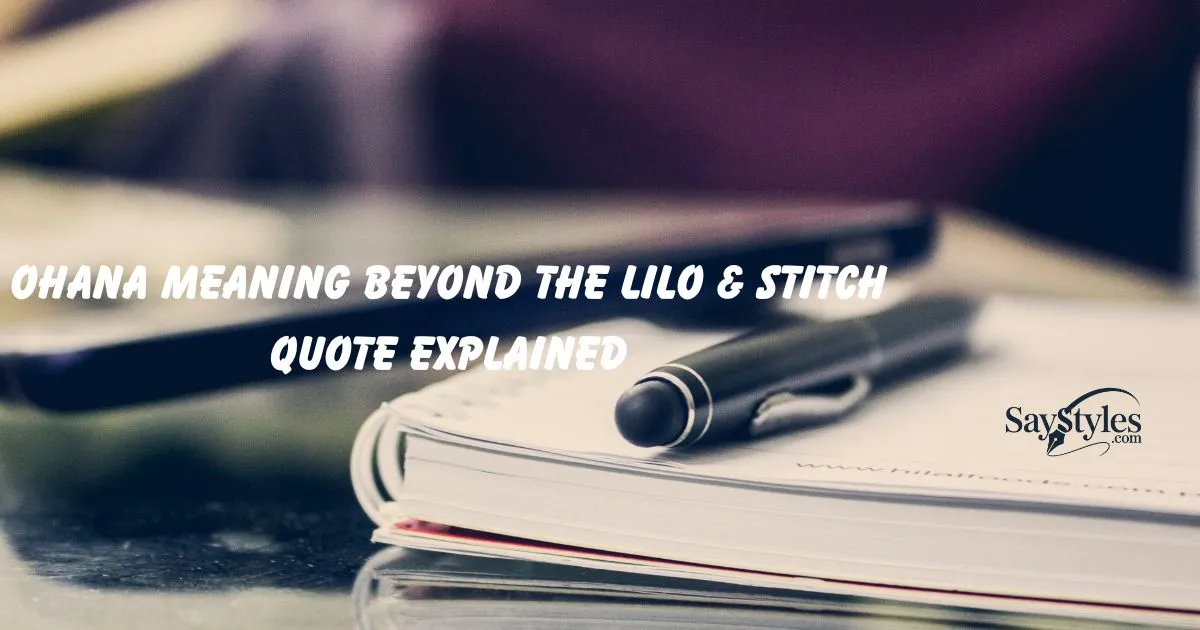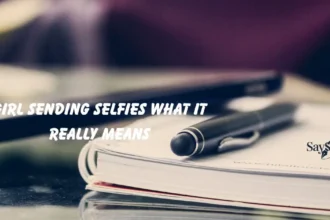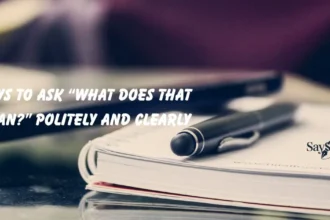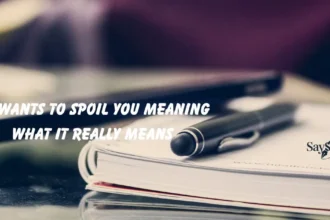The word Ohana isn’t just a heartwarming line from Lilo & Stitch it carries deep meaning in Hawaiian culture. At its core, Ohana represents family, loyalty, and togetherness, extending beyond blood relations to include friends and community. Understanding this term gives more depth to the famous quote, “Ohana means family. Family means nobody gets left behind or forgotten.”
You’ll see Ohana used in everyday conversations, inspirational quotes, and social media captions to express unity and care. Many people search for its full definition, cultural significance, and examples of usage to connect with its true essence.
In this article, we’ll explore the origin of Ohana, its cultural roots, and how it’s used today, so you can appreciate the term beyond just a catchy movie quote.
What Does Ohana Mean?
The word “Ohana” comes from Hawaiian culture and literally means family, but it carries a deeper meaning than just blood relations. In Hawaiian tradition, family includes not only your immediate relatives but also extended family, close friends, and anyone you consider part of your support circle. It emphasizes loyalty, love, and mutual support.
In popular culture, Lilo & Stitch made the phrase famous with the line: “Ohana means family. Family means nobody gets left behind or forgotten.” This captures the spirit of togetherness and care.
Quick examples of Ohana in real life:
- Checking in on friends who are struggling: “Don’t worry, you’re part of my Ohana—I got you.”
- Celebrating achievements: “Congrats on your promotion! Ohana always cheers for each other.”
- Offering support: “If you need help moving, just call. That’s what Ohana is for.”
Essentially, Ohana is about inclusivity, trust, and emotional bonds, not just genetics. Using it in conversation signals warmth and loyalty, making your message feel personal and heartfelt.
See also: Fugazi Meaning Origins, Slang Use, and Cultural Impact
Best Alternatives to Ohana
Sometimes, you may want to express family or close bond in different tones. Here’s a practical breakdown by situation:
Casual
- Fam – “Can’t wait to hang out, fam!”
- Crew – “The crew’s meeting at 7.”
- Squad – “Squad goals this weekend!”
- Home team – “Shoutout to my home team for helping me.”
- Circle – “Keeping my circle tight.”
- Peeps – “Going out with my peeps tonight.”
- Bros / Sis – “Thanks, bro, for having my back.”
Professional / Respectful
- Team – “Team, let’s finish this project strong.”
- Colleagues – “Colleagues, your input is valuable.”
- Partners – “Thanks, partners, for your support.”
- Community – “Our community stands together.”
- Associates – “We appreciate our associates’ efforts.”
- Network – “Networking events strengthen our bonds.”
- Allies – “Allies in the workplace make challenges easier.”
Emphatic / Emotional
- Chosen family – “You’re my chosen family.”
- Lifeline – “You’ve been my lifeline through this.”
- Kindred spirits – “We’re kindred spirits, always.”
- Ride-or-die – “My ride-or-die never leaves me hanging.”
- Heart crew – “My heart crew supports me no matter what.”
- Soul squad – “Soul squad, let’s celebrate tonight!”
- Inner circle – “My inner circle knows everything about me.”
Playful / Fun
- Buddies – “Hey, buddies! Movie night?”
- Homies – “Shoutout to the homies!”
- Gang – “The gang’s all here.”
- Mates – “Mates for life, right?”
- Sidekicks – “My sidekicks never let me down.”
- Pals – “Thanks, pals, for the support!”
- Amigos – “Amigos forever!”
Using these alternatives depends on tone, audience, and context. Casual words like “fam” work best in texts, while professional alternatives like “team” or “associates” suit emails or work chats.
Ohana in Texting / Messaging
When texting, Ohana can express warmth, loyalty, or inclusion in short, friendly phrases. Here are 20 practical examples:
- “Hey Ohana, check this out!” – Sharing news with your group.
- “Good morning, Ohana 🌸” – Starting the day warmly.
- “Ohana, who’s in for dinner?” – Inviting friends.
- “Can’t wait to see my Ohana this weekend!” – Excited tone.
- “Ohana always comes first ❤️” – Emphasizing loyalty.
- “Thanks, Ohana, for the support.” – Expressing gratitude.
- “Miss you, Ohana!” – Showing affection.
- “Ohana vibes only today!” – Positive energy.
- “Don’t stress, Ohana’s got you.” – Comforting someone.
- “Late night with the Ohana crew 😎” – Casual hangout.
- “Happy birthday, Ohana!” – Celebrating friends/family.
- “Ohana time is sacred, no plans?” – Scheduling togetherness.
- “We’re all Ohana here.” – Group solidarity.
- “Ohana check-in!” – Quick message to see how everyone’s doing.
- “Shoutout to my Ohana for helping today.” – Public gratitude.
- “Road trip with my Ohana!” – Sharing fun moments.
- “Ohana forever 💕” – Short, emotional expression.
- “Just a reminder: Ohana sticks together.” – Encouragement.
- “Ping my Ohana if you need anything.” – Helpful suggestion.
- “Ohana dinner tonight at mine?” – Casual invite.
Most of these work better in casual texts or social media than formal communication, keeping the message heartfelt and relatable.
When to Use & When to Avoid Ohana
Do’s:
- Close friends and family: Show genuine care and inclusivity.
- Team bonding: When you want to signal loyalty or support.
- Group chats: To create warmth in casual conversations.
- Celebratory moments: Achievements, birthdays, or milestones.
Don’ts:
- Formal emails: Ohana can seem unprofessional.
- Strangers or acquaintances: May feel too intimate or personal.
- However, in conflict situations, it could be easily misinterpreted if not used carefully.
- Professional networking: Stick to neutral alternatives like “team” or “colleagues.”
The key is context and tone. Furthermore, using Ohana with the right people makes it feel heartfelt and authentic; however, using it in the wrong setting can come across as awkward or overly casual.
Types of ʻOhana in Hawaii
In Hawaii, ʻOhana isn’t just immediate family—it’s a layered concept. Traditionally, it includes:
- Immediate family: parents, siblings, and children.
- Extended family: grandparents, aunts, uncles, and cousins.
- Adopted or chosen family: close friends, mentors, and community members.
- Community/tribal connections: neighbors or local groups who support one another.
This layered approach shows that being part of someone’s ʻOhana isn’t limited by blood—it’s about mutual care, shared responsibility, and lifelong bonds. In modern usage, people often say, “You’re my ohana” to signal trust and emotional closeness, even if there’s no legal or blood relationship.
The History of ʻOhana
The concept of ʻOhana has deep roots in Hawaiian culture. Traditionally, Hawaiian society valued collective well-being over individualism, with extended families often living together and sharing resources.
Key historical points:
- Pre-colonial Hawaii: ʻOhana was essential for survival—everyone contributed to farming, fishing, and shelter.
- Cultural preservation: Oral traditions and rituals reinforced loyalty and respect among family units.
- Modern adaptation: Today, ʻOhana reflects both family ties and chosen relationships, preserving the spirit of unity even in urban and diaspora settings.
Understanding this history helps you appreciate why ʻOhana means more than just family—it’s a philosophy of care and commitment.
Emotional Support from ʻOhana
One of the strongest aspects of ʻOhana is emotional support. Hawaiians believe that everyone has a role in looking out for each other.
Examples of support:
- Listening without judgment: “I’m here, tell me what’s going on.”
- Celebrating achievements: “Congrats! That’s an ohana moment.”
- Offering help in tough times: “Lean on me, we’re ohana.”
- Sharing responsibilities: from child care to household tasks, everyone contributes.
In modern messaging, people often use ʻOhana to express that no matter what happens, someone will always have your back—emphasizing security, trust, and inclusion.
Ways to Express ʻOhana as a Broader Philosophy
ʻOhana extends beyond family—it’s a way of life and interpersonal philosophy. You can express it by:
- Acts of kindness: helping neighbors or friends without expecting anything in return.
- Community involvement: volunteering or participating in local events.
- Inclusive language: using terms like “we” or “our ohana” to emphasize unity.
- Mentorship: guiding younger generations as a form of extended family support.
- Conflict resolution: handling disagreements respectfully, maintaining harmony.
Living by the principle of ʻOhana encourages people to treat everyone as part of a supportive, extended family, reinforcing loyalty, respect, and compassion.
ʻOhana, Aloha, Mahalo, and Other Local Hawaiian Terms
Hawaiian language is rich in meaningful expressions that reflect values:
- ʻOhana: family, loyalty, mutual support.
- Aloha: love, peace, compassion, and greetings.
- Mahalo: gratitude and appreciation.
- Kuleana: responsibility and privilege.
- Malama: care for someone or something.
Using these words in context shows respect for Hawaiian culture and its relational philosophy. For instance, saying “Aloha ʻOhana” conveys love, respect, and inclusion all at once—perfect for messaging or greetings.
Keep Learning About ʻOhana
Understanding ʻOhana goes beyond dictionary definitions—it’s about living its principles daily. You can continue exploring by:
- Observing family and community practices in Hawaii.
- Reading books or articles about Hawaiian culture and history.
- Applying ʻOhana philosophy in your own life—support friends, mentor others, or build inclusive communities.
- Learning related Hawaiian terms to enrich your communication and deepen cultural appreciation.
Embracing ʻOhana transforms relationships into lasting bonds of trust and care, creating a personal and communal support system that echoes across generations.
Key Insight About Ohana Meaning
1. What does Ohana mean?
Ohana is a Hawaiian word that means family. In addition, it emphasizes that family includes not only blood relatives but also close friends, thereby highlighting strong bonds and lasting loyalty.
2. Where did Ohana become popular?
Ohana gained global recognition from the Disney movie Lilo & Stitch, where it is famously said, “Ohana means family. Family means nobody gets left behind or forgotten.”
3. Can Ohana refer to friends too?
Yes! In Hawaiian culture, Ohana includes friends and community members who are considered part of your support network.
4. How is Ohana used in TikTok or social media?
Users use Ohana in captions, hashtags, or videos to celebrate friendship, family bonds, or loyalty, often sharing heartwarming or supportive content.
5. Is Ohana only a cultural or emotional term?
While it’s emotional, Ohana also reflects commitment, unity, and inclusion. Moreover, it stands as a motivational and inspiring concept that extends beyond family ties.
6. Can Ohana be used in casual conversation?
Absolutely! People often say “You’re my Ohana” to friends or loved ones to express closeness and loyalty in a heartfelt way.
7. Why is Ohana meaningful today?
Ohana resonates deeply because it not only reminds us of connection, love, and support but also highlights values that transcend family; therefore, it becomes universally relatable in both friendships and communities.
Final Thoughts
Ohana meaning is more than a word, it’s an expression of loyalty, connection, and love. Beyond the Lilo & Stitch quote, it reminds us to cherish and include those who matter most. In texts, conversations, or social media, it adds warmth and personal touch.
Next time you type Ohana meaning, remember it’s not just slang, it’s a celebration of bonds. Try incorporating it in messages, small shoutouts, or casual check-ins. Your friends and family will feel the love, and your communication will naturally feel closer and more authentic.

I’m Lily Hart, the Admin behind the engaging responses at SayStyles.com! With a knack for blending wit and warmth, I turn every piece of writing into something memorable. From clever advice to fun comebacks, I’m here to make sure every response leaves you smiling and thinking.






